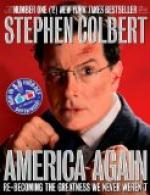As Roper’s ears shot forward and he turned aside towards a clump of thick-set bushes, Dan chuckled in expectation, but all Roper found was a newly deserted gundi camp, and fresh tracks travelling eastwards—tracks left during the night—after our arrival at the river, of course.
Dan surveyed the tracks, and his chuckles died out, and, growing sceptical of the success of his surprise party, he followed them for a while in silence, Sambo riding behind, outwardly stolid, but no doubt, inwardly chuckling.
Other eastward-going tracks a mile or so farther on made Dan even more sceptical, and further tracks again set him harking back to his theory of “something always telling ’em somehow,” and, losing interest in nigger-hunts, he became showman of the Roper river scenery.
Down into the depths of gorges he led us, through ferny nooks, and over the sandy stretches at the base of the mighty clefts through which the river flows; and as we rode, he had us leaning back in our saddles, in danger of cricking our necks, to look up at lofty heights above us, until a rocky peninsula running right into the river, after we had clambered up its sides like squirrels, he led the way across its spiky surfaced summit, and soon we were leaning forward over our horses’ necks in danger of taking somersaults into space, as we peered over the sides of a precipice at the river away down beneath us. “Nothing like variety,” Dan chuckled; and a few minutes later again we were leaning well back in our saddles as the horses picked their way down the far side of the ridge, old Roper letting himself down in his most approved style; dropping from ledge to ledge as he went, stepping carefully along their length, he would pause for a moment on their edges to judge distance, then, gathering his feet together, he would sway out and drop a foot or more to the next ledge. Riding Roper was never more than sitting in the saddle and leaving all else to him. Wherever he went there was safety, both for himself and his rider whether galloping between trees or beneath over-hanging branches, whether dropping down ridges with the surefootedness of a mountain pony, or picking his way across the treacherous “springy country.” No one knew better than he his own limits, and none better understood “springy country.” Carefully he would test suspicious-looking turf with a cautious fore-paw, and when all roads proved risky, in his own unmistakable language he would advise his rider to dismount and walk over, having shown plainly that the dangerous bit was not equal to the combined weight of horse and man. When Roper advised, wise men obeyed.




